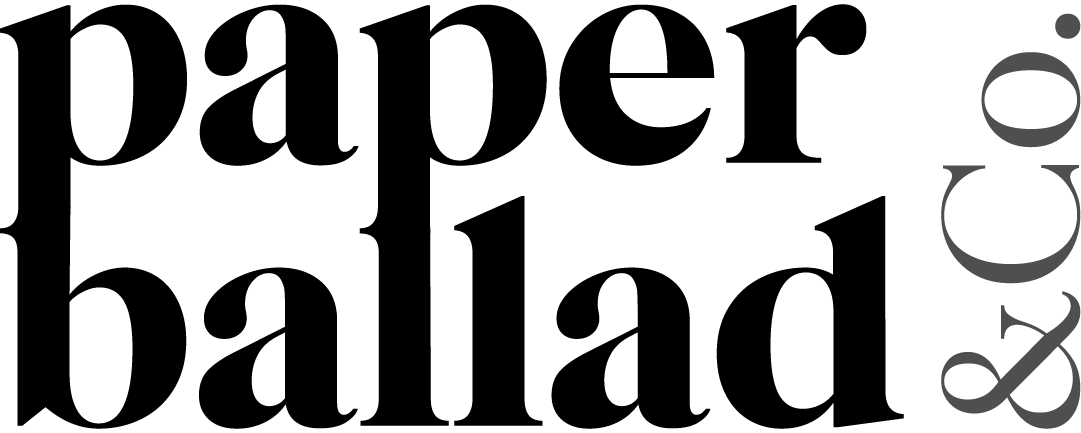Welcome to the exciting world of white label content marketing! We’ll go over the fundamentals of this game-changing strategy so that you can start shaking up the digital marketing scene.
Get ready to explore how brands and agencies team up to boost their online presence. We’ll uncover the magic of white label content marketing and how it’s revolutionizing connecting with audiences.
What is White Label Content Marketing?
White label content marketing is a collaborative strategy where businesses partner with specialized agencies or content creators to produce and distribute content under the brand’s name. Essentially, it involves outsourcing content creation to professionals who create high-quality material tailored to the brand’s voice and target audience.
This content is then delivered to the brand, which can be used across various channels such as websites, social media, email campaigns, and more. The key aspect of white label content marketing is that the brand maintains ownership and control over the content, allowing them to strengthen its brand identity and engage its audience effectively.
How Does White Label Content Marketing
Work?
White label content marketing operates on a straightforward yet powerful principle: collaboration for mutual benefit. Here’s how it works in 6 steps:
Step #1. Collaboration and Partnership
Brands and specialized agencies form partnerships where the agency provides content creation services tailored to the brand’s needs.
Step #2. Content Creation
The agency, armed with expertise in content creation, develops high-quality content aligning with the brand’s voice, values, and goals.
Step #3. Branding and Customization
The content is white-labeled, meaning it’s produced without any agency branding, allowing the brand to customize and claim ownership of the content fully.
Step #4. Delivery and Distribution
The agency delivers the content to the brand, which can then be distributed across various channels, including websites, social media, email campaigns, and more.
Step #5. Monitoring and Feedback
Throughout the process, brands maintain control and oversight, providing feedback to ensure the content meets their standards and resonates with their audience.
Step #6. Long-term Partnership
Successful collaborations often lead to long-term partnerships, where brands and agencies continuously work together to drive results and achieve marketing objectives.
What Are The Benefits Of White Label
Content Marketing?

White label content marketing offers a multitude of benefits for both brands and agencies, making it a highly advantageous strategy in the digital marketing landscape.
1. Enhanced Brand Presence
By leveraging the expertise of specialized agencies, brands can create high-quality content that resonates with their target audience, thereby strengthening their online presence and brand authority.
2. Cost Efficiency
Outsourcing content creation to agencies eliminates the need for in-house resources and overhead costs associated with hiring full-time employees.
This cost-effective approach allows brands to allocate their budget more efficiently.
3. Scalability
White label content marketing offers scalability, allowing brands to scale their content production according to their needs and objectives.
Whether it’s creating a single piece of content or launching a comprehensive content marketing campaign, agencies can adapt to meet the brand’s requirements.
4. Access to Expertise
Partnering with specialized agencies grants brands access to a diverse talent pool and expertise in content creation, digital marketing strategies, SEO, and more.
This ensures that brands receive top-notch content tailored to their specific industry and audience.
5. Time Savings
Delegating content creation tasks to agencies frees up valuable time for brands to focus on core business activities and strategic initiatives.
This streamlined approach increases productivity and allows brands to stay ahead of the competition.
6. Flexibility and Customization
White label content marketing offers flexibility and customization options, allowing brands to tailor content to their unique brand voice, values, and goals.
This ensures that content aligns seamlessly with the brand’s overall marketing strategy and resonates with its target audience.
7. Improved ROI
By partnering with agencies that specialize in content creation and digital marketing, brands can expect to see a higher return on investment (ROI) from their marketing efforts.
High-quality content produced through white label partnerships is more likely to drive engagement, conversions, and ultimately, revenue for the brand.
8. Strengthened Client Relationships
For agencies, white label content marketing provides an opportunity to build strong, long-term relationships with clients.
By delivering exceptional content and results, agencies can establish themselves as trusted partners, leading to repeat business and referrals.
The greatest storytelling techniques in our digital age are as follows: UX Strategy, Branding, & Content Marketing. These are the tools of our trade at Paperballad & Co. Together, let’s dance our last dance and captivate the world with your story.
What Are Examples Of White Label Content
Marketing?
To gain a deeper understanding of how white label content marketing works in practice, let’s explore some real-world examples of successful collaborations between brands and agencies:
1. Paperballad & Co. & GHI Tech Startup:
- Paperballad & Co. is the premier content marketing & UX strategy agency in Malaysia. They collaborate with GHI Tech Startup, a burgeoning technology company, to enhance their online presence.
- Paperballad & Co. develops a series of blog posts and infographics highlighting GHI Tech Startup’s innovative products and industry insights.
- The content is optimized for SEO and shared across GHI Tech Startup’s blog and social media platforms.
- The collaboration results in improved brand recognition and thought leadership within the tech industry, driving increased website traffic and leads for GHI Tech Startup.
2. XYZ Agency & ABC Fitness Apparel:
- XYZ Agency, a content marketing firm, partners with ABC Fitness Apparel, a leading fitness clothing brand.
- XYZ Agency creates a series of workout videos featuring influencers wearing ABC Fitness Apparel’s latest collection.
- The videos are white-labeled and shared on ABC Fitness Apparel’s website and social media channels, showcasing the brand’s commitment to fitness and lifestyle.
- The collaboration drives increased brand visibility and engagement among fitness enthusiasts, ultimately leading to a boost in sales for ABC Fitness Apparel.
3. JKL Digital Marketing & MNO E-commerce Platform:
- JKL Digital Marketing teams up with MNO E-commerce Platform, an emerging online marketplace, to attract more sellers and buyers.
- JKL Digital Marketing creates a comprehensive white paper offering tips and strategies for successful e-commerce selling.
- The white paper is branded with MNO E-commerce Platform‘s logo and distributed to their email subscriber list and social media followers.
- The collaboration positions MNO E-commerce Platform as a valuable resource for online sellers, driving increased sign-ups and transactions on the platform.
These examples illustrate the versatility and effectiveness of white label content marketing in various industries and scenarios. By partnering with agencies to create tailored and impactful content, brands can amplify their marketing efforts and achieve their business objectives with ease.
What Is A White Label Marketing Platform?

In short, a white label marketing platform or tool are software solutions provided by third-party providers, allowing agencies to elevate their services and strengthen their brand identity without any branding from the original provider.
Here are some common platforms and tools commonly used by content marketing agencies:
- 1. Content Management Systems (CMS)
White label CMS platforms like WordPress or Shopify offer robust content management capabilities, allowing brands to create, edit, and publish content seamlessly. These platforms often include features such as content scheduling, collaboration tools, and user permissions management. - 2. Content Creation Tools
White label content creation tools like Canva and Adobe Illustrator equip brands and agencies with the means to generate high-quality content efficiently. These tools may include graphic design software, video editing tools, and writing assistance platforms that help streamline the content creation process. - 3. SEO Tools
Search Engine Optimisation (SEO) tools like Semrush and Ahrefs assist brands in optimizing their content for search engines, improving visibility and driving organic traffic. These tools may include keyword research tools, on-page SEO analyzers, and backlink monitoring software. - 4. Analytics and Reporting Tools
Analytics and reporting tools like Google Analytics enable brands to track the performance of their content marketing efforts effectively. These tools provide insights into key metrics such as website traffic, engagement levels, conversion rates, and ROI, allowing brands to measure the effectiveness of their content campaigns. - 5. Social Media Management Platforms
White label social media management platforms empower brands to manage their social media presence efficiently. These platforms offer features such as content scheduling, social media analytics, and audience engagement tools, enabling brands to optimize their social media marketing strategies. Examples include Hootsuite, Buffer, and Sprout Social.
Conclusion
In conclusion, white label content marketing is a transformative strategy that empowers brands and agencies to collaborate effectively in creating and distributing high-quality content. By leveraging specialized expertise and innovative tools, brands can enhance their online presence, engage their audience, and drive meaningful results.
As the digital landscape continues to evolve, embracing white label content marketing presents an opportunity for brands to stay ahead of the curve and unlock new avenues for growth and success.
Whether it’s enhancing brand visibility, optimizing content for search engines, or strengthening client relationships, white label content marketing offers a multitude of benefits that can propel brands towards achieving their marketing objectives.
Embrace the power of white label content marketing and take your brand to new heights in the digital realm.
Words can change the world. At Paperballad & Co., we wield the mighty pen to help you achieve product-market fit through science-driven content. Schedule a consultation with us here and change the world with our words.















